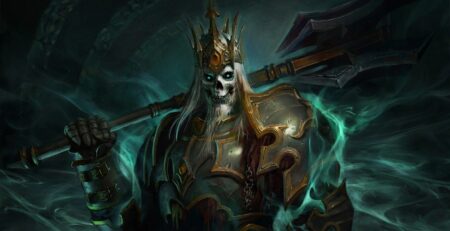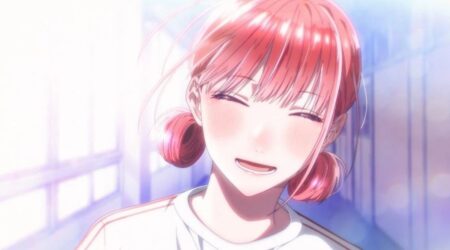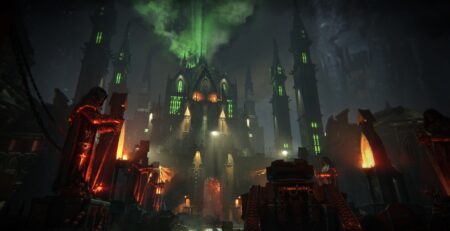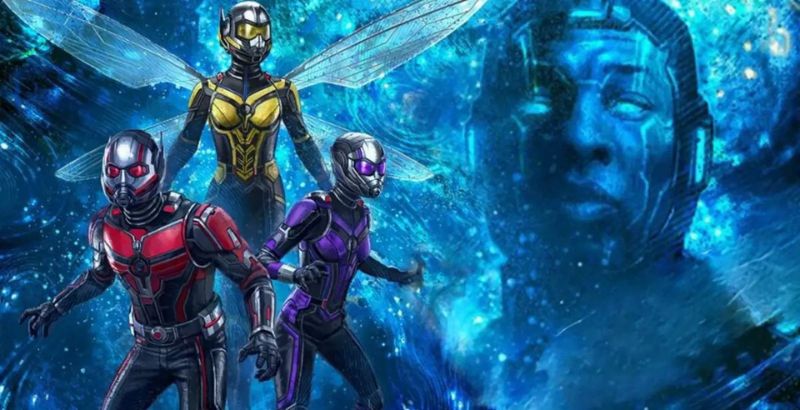
Spoilers for Ant-Man and The Wasp: Quantumania, Ms. Marvel, and other MCU projects follow.
The “cinematic universe” has taken a chokehold on Hollywood and audiences in the last decade, promising sprawling, interconnected stories that will push our favorite characters in new directions. The Marvel Cinematic Universe (MCU) has heralded this phenomenon, aiming to take the rich connectivity of its comics universe and apply it to screen. But after 31 (!) films and eight TV series, have most of the newer characters of the MCU been able to develop as much as they can?
It has in fact been this over-connectivity that has systemically hampered the growth of characters we love by connecting, and even shoehorning, them into story arcs that serve the wider MCU. It’s almost as though Marvel Studios doesn’t have faith that audiences want to see these characters grow independently, even when their individual series receive rave reviews. As a result, the MCU systemically squanders the potential of its characters to grow beyond their basic limits of storytelling.
Taking the most recent example, Ant-Man and the Wasp: Quantumania, we see fan-favorite Scott Lang (Paul Rudd), along with Hope Van Dyne (Evangeline Lily), his daughter Cassie (Kathryn Newton), Hank Pym (Michael Douglas), and Janet Van Dyne (Michelle Pfeiffer) roped into a sub-atomic adventure in the Quantum Realm that has them face Kang The Conqueror (Jonathan Majors). While Majors is absolutely formidable in this role, and a magnificent acting presence who elevates the film overall, the writing of him being in this predicament shows a lack of imagination by screenwriter Jeff Loveness. Kang (and all his variants) is the next Marvel Big Bad™ for all the heroes to face.
The writing of Kang into the film as the shocking villain for the Ant-Man family to face is contrived. Janet Van Dyne, after having just experienced the universe-spanning genocide of the Snap from Thanos, decides not to tell her family about meeting Kang because of her shame of having accidentally helped him. Loveness makes Van Dyne, a brilliant and shrewd character in the comics, somehow unable to relay this critical information to her family and the Avengers.
No amount of shame would conceivably prevent her from sharing it. In contriving this conflict, Loveness does one of Marvel’s most iconic heroines a huge disservice and forces what could have been an easily avoidable conflict for the Ant-Wasp family. Pfeiffer gives a great performance alongside Majors, but unfortunately, they can only elevate the mediocre writing so much.

Quantumania isn’t interested in character development for Scott, Hope, Cassie, Janet, or Hank. While Scott and Hope’s previous films were about familial healing and appreciation, it’s barely substantive here. There’s a brief father-daughter reconciliation, but it’s extremely surface-level and doesn’t reflect any substantive lessons learned. When they try to show that Scott learned a lesson from his daughter about helping people, it’s simplistic and laughable to compare two different situations, and shows that Loveness and Marvel Studios put little to no thought into it.
The film is only interested in showing Kang as a force to be reckoned with, and even has the ending screen of “Kang will return” rather than “Ant-Man and the Wasp will return.” Paul Rudd and Evangeline Lily do their best, but the film isn’t really about them, and their characters have virtually no growth from the start. It would have behooved Marvel Studios to make a singular Kang film instead, but because they thought Kang would only be successful in a pre-existing franchise. Once again, they didn’t have faith in letting their characters stand on their own.
And even when they do initially let characters stand on their own in their individual films or series, they capitulate them to serve the wider MCU.
Ms. Marvel introduced us to the wonderful Kamala Khan (Iman Vellani) who has always been a fan of superheroes and aims to be part of their world somehow but feels she’ll be unable to as a brown Pakistani-American Muslim girl. This is the same starting point for her in the comics, but whereas in the former she undergoes a highly individual journey that’s solely about her accepting her weird polymorph Inhuman powers, serving as a highly effective metaphor for a teenager experiencing puberty, her MCU series changes her powerset to be more like a Green Lantern’s, with light constructs. Per the word so often repeated in the show, she is now “cosmic,” with powers designed to be similar to Captain Marvel’s (Brie Larson) and Monica Rambeau’s (Teyonah Parris).

Thankfully, the series keeps a grounded focus on Kamala’s friends and family and how she interacts with them as a new hero, especially in the third episode when she questions the repercussions of her heroism for her Muslim community. But this conflict is mainly relegated to the third episode, which additionally crams in nonsensical and regrettably Orientalist elements with the subpar main villains of the show. Almost all of this is to set up questions about how Kamala figures into the wider MCU.
While Kamala, with the grounded focus on her family, gets great development in the fourth and fifth episodes in Pakistan, we quickly capitulate again to the wider MCU in the sixth episode finale. While it was great to see Kamala embraced as the protector of her local community, the hyper-interconnectivity of the MCU literally pulls Kamala into Captain Marvel’s battle as she switches places across the universe with the new hero. Hopefully, Kamala’s journey is substantive in The Marvels and builds her character in ways that will benefit Season 2 of her own show. That said, it is immensely frustrating that she only had a six-episode season to establish herself before launching into the wider universe when her comics gave her so much more time and space.
But that’s not all. Doctor Strange and The Multiverse of Madness, written by Michael Waldron, needlessly sacrifices character development for the needs of the MCU as well. Perhaps most severely, the script reduces America Chavez (Xochitl Gomez) to a McGuffin. While this may understandably only be the start of America’s journey to get to the more confident self she is in the comics, the script robs her of agency, making her and her powers the main objective for others. The “you just had to believe in yourself” moment she has at the end is unearned and, again, didn’t take much concerted character work to get there. She just had to finally gain control of her powers to serve the main plot. At the end of the film she’s now a magic student with Doctor Strange and Wong (Benedict Wong), continuing to contrive her to other characters’ storylines in a way she never had before in other media.
The titular character of Doctor Strange (Benedict Cumberbatch) has barely any development whatsoever in the film as well. I can barely tell what his lesson learned in the film was as the spectacles of the multiverse distract us from it. He needs to learn to be happy, I think? But again, Waldron’s script is fundamentally uninterested in this question, and keeps the focus on the multiverse (which ironically also feels underbaked). Not Doctor Strange. While Wanda (Elizabeth Olsen) of course has tremendous character development in WandaVision, much of it is reneged for the sake of the Multiverse of Madness’s plot, which doesn’t allow us to actively see the active descent and reasoning of Wanda’s descent into villainy. “It’s just this evil book she has” the film bluntly tells us without showing why Wanda is more willing to consciously hurt people. Her being a villain is fine, but Marvel Studios didn’t want to show the work to get there.
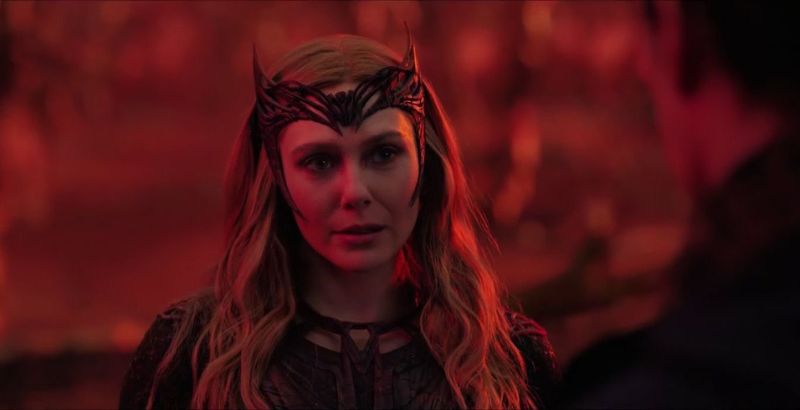
But besides these more recent examples, we can find more of the MCU’s systemic issue with character development. Thor: Love and Thunder severely short-thrifted Jane Foster’s (Natalie Portman) journey as The Mighty Thor when her comics gave her a much more prolonged journey of perseverance and meaningful loss and reduced King Valkyrie (Tessa Thompson) to a sidekick. Loki, even while it masterfully expands the character of its central protagonist (Tom Hiddleston), capitulates into needlessly roping him into the wider conflict of the MCU and losing meaningful resolution for him. The Falcon and the Winter Soldier, while serving its leads at least somewhat well, completely changed the origin of the second Falcon, Joaquín Torres (Danny Ramirez), from a DREAMER fighting for his marginalized Mexican community seeking refuge in the United States to a solider in the US military to assist Sam Wilson (Anthony Mackie), seemingly depriving him of that meaningful backstory from the comics.
The MCU isn’t always like this. There are various examples of projects, including some recent ones, that keep the focus on character driving the story of the films and TV series. The MCU projects that stand out amongst the rest are those bold enough to pointedly not give into that urge to immediately tie their story to the wider universe. The charisma of the actors and the detailed care in their characters writing is what fundamentally drew audiences to these films, along with the spectacle. Because of that, Captain America, Thor, and Iron Man could compel audiences to stay tuned, and newer independent characters like Moon Knight and Shang-Chi can do the same. It’s for them that we would want to know what happens next
The MCU is at its best when it allows its various characters and storylines to breathe on their own. Marvel Studios can’t rely anymore on hoping its audience watched a previous installment to be excited for the next. The only thing that should compel us to watch more is continuing the detailed journeys of its characters and allow them to grow. None of these movies or TV shows should be homework for the next thing. The more Marvel focuses on the present with its characters, the stronger their stories can be, and let audiences, both nerdy and general, feel less fatigued watching the seemingly endless stories they produce.

